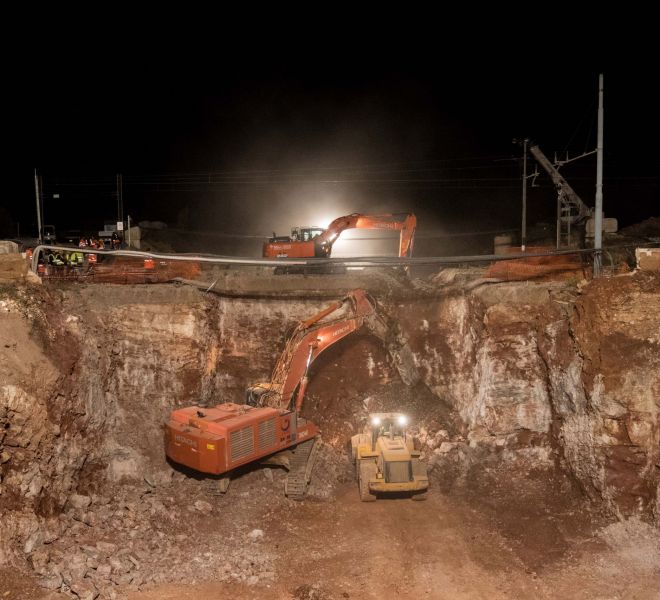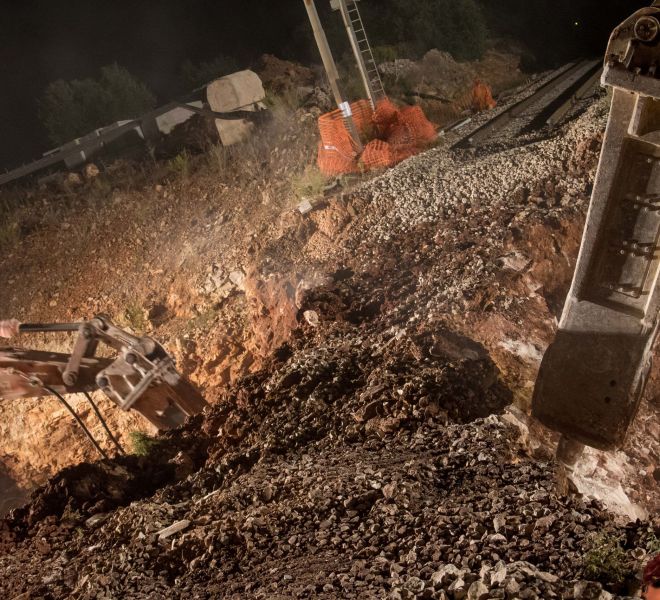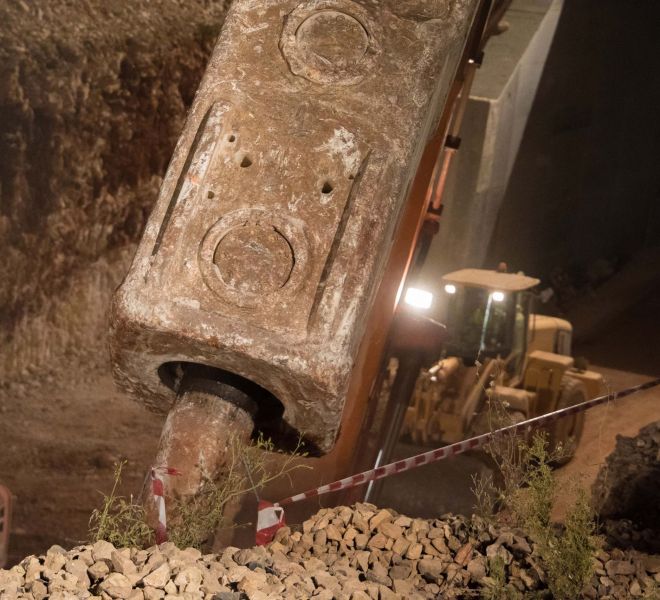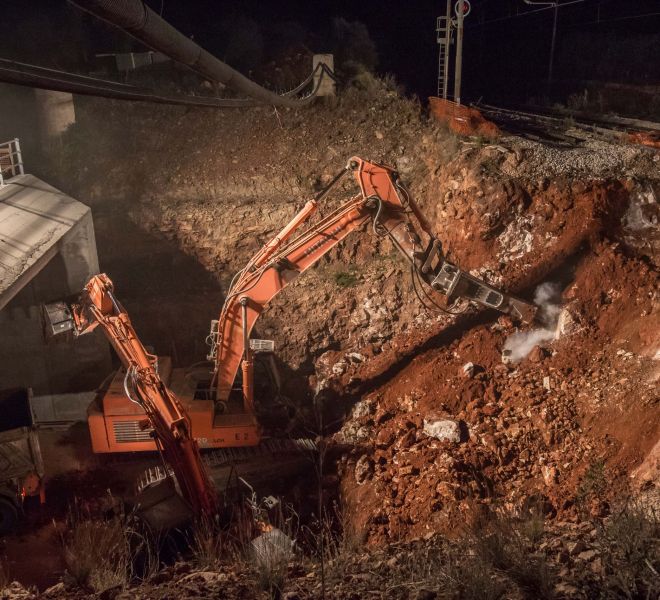Indeco hammers burn the midnight oil to excavate a new track along the Bari-Taranto railway
An HP 9000, two HP 7000s, with help in the home stretch from the big gun, an HP 18000, deliver the huge excavation project on time.
Indeco hammers are a bona fide guarantee when it comes to completing a job on time. This job involved digging a series of cuttings, tunnels and embankments for a double-track railway between Bari Sant’Andrea and Bitetto (about 10 km in length) along the Bari-Taranto line, to replace the existing single track. The aim of the project is to connect the two Apulian cities with a high-speed line. The second track is being laid along a totally new route, which means getting rid of no less than 6 level crossings in the town of Modugno, and helping both to increase the amount of rail traffic and to ensure faster train journeys.
The excavations and reinforced concrete works were entrusted by RFI SpA, a company in the Ferrovie dello Stato group, Italy’s national rail corporation, to Matarrese SrL, which began work in 2013 and will be handing the project over by the end of 2018.
The overall length of the stretch involved is 12 km, including two along the pre-existing route, as well as ten kilometres of new line along a cutting where 1.5 million m³ of limestone had to be excavated – says Matarrese SrL technical director Giovanni Loiudice – The main hammers used for the excavations were an Indeco HP 9000 and two HP 7000s. Daily production was approx. 750 m³ for the HP 9000 and 550 m³ for the HP 7000 over the course of around 800 working days, in line with expected performance targets. The high-performance hammers enabled the job to be completed on time, while complying with excavation requirements.
At the intersection with the pre-existing track, night trains had to be cancelled, leaving just 55 hours to build the new underlying rail section and put back the overlying track. For this part of the job, we used an Indeco HP 18000 hammer, which reduced excavation times from the 20 hours planned to just 8 hours, with hourly production of about 500 m³”.










